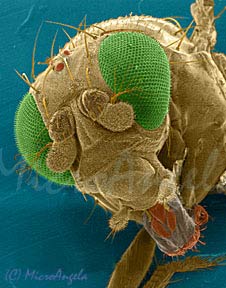
Maybe not, given the implications of the discovery that insects have decision-making capability:
Fruit flies display rudimentary free will
01:00 16 May 2007
NewScientist.com news service
Bob HolmesFruit flies have free will. Even when deprived of any sensory input to react to, the zigs and zags of their flight reveal an intrinsic, non-random – yet still unpredictable – decision-making capacity.
If evolution has furnished humans with a similar capacity, this could help resolve one of the long-standing puzzles of philosophy.
Science assumes that effects have causes, and that if we understand the causes well enough we can predict the effects. But if so, our experience of being free to make choices is an illusion, since we are in effect just sophisticated robots responding to stimuli. If our behaviour is unpredictable, this is only because random events prevent us from responding perfectly to our environment.
All the media is reporting that this means flies have free will.
The experimenters glued a bunch of fruit flies to something and then analysed their subsequent attenmpts at movement into random and non-random, which if I’m understanding this correctly, showed that what looked like free will arose from a reiteration of random movements forming a chaotic system. So it only appears to be free will.
“It makes a lot of sense to assume that what we experience as free will is based on components that have cropped up in evolution long before”
The whole universe is looking like it’s a series of reiterated random events that have formed a chaotic system – and we’re part of that, just like fruitflies, so why should we be any different?